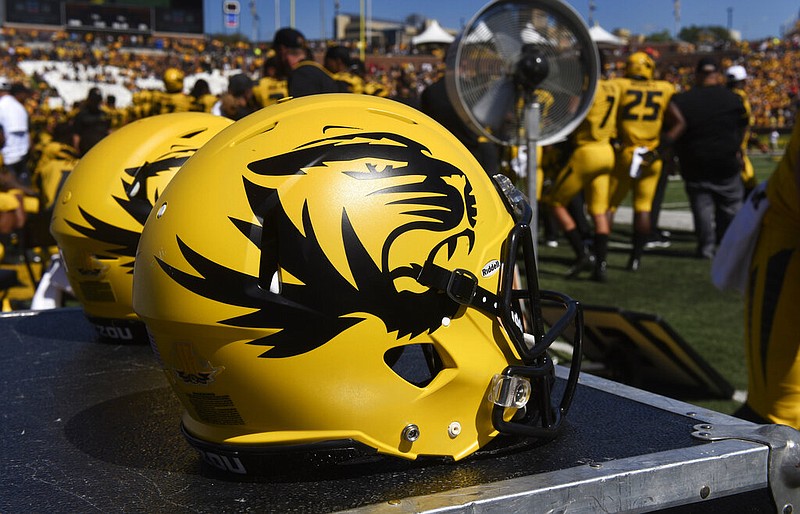COLUMBIA - The NCAA's committee on infractions announced its findings Thursday after a two-year investigation into tutoring violations reported by former Missouri tutor Yolanda Kumar and sanctions include postseason bans and scholarship reductions for football in 2019-20 and baseball and softball for 2019.
These bans mean the baseball and softball teams are ineligible for this spring's SEC and NCAA tournaments, and the football team ineligible for the 2019 SEC Championship game and a bowl appearance.
"A former University of Missouri, Columbia, tutor violated NCAA ethical conduct, academic misconduct and academic extra benefits rules when she completed academic work for 12 student-athletes, according to a Division I Committee on Infractions panel," the release said. "Although the tutor said she felt pressure to ensure student-athletes passed courses, according to the committee's report, the investigation did not support that her colleagues directed her to complete the student-athletes' work."
In its decision, the committee stated, "Simply put, 12 student-athletes did not complete their own work." It continued to say Kumar engaged in the activity, despite receiving extensive and comprehensive education on appropriate tutoring practices.
Missouri will appeal the NCAA's decision.
"Once these issues were brought to our attention in November 2016, the university moved swiftly and fully cooperated with the NCAA Enforcement staff to jointly investigate the allegations that were made," Missouri athletic director Jim Sterk said in a statement. "We are shocked and dismayed by the penalties that have been imposed today and will aggressively fight for what is right.
"The Committee on Infractions has abused its discretion in applying penalties in this case, and the University will immediately appeal this decision that has placed unfair penalties on our department and programs. It is hard to fathom that the University could be cited for exemplary cooperation throughout this case, and yet end up with these unprecedented penalties that could unfairly and adversely impact innocent current and future Mizzou student-athletes.
"It is important to note that this was the action of one individual, who acted unilaterally and outside of the expectations that we have established for our staff members."
In its decision, the NCAA recognized Missouri's "exemplary cooperation," including "prompt acknowledgement of the violation, acceptance of responsibility and imposition of meaningful corrective measures and/or penalties."
All three parties - Missouri, the tutor and the NCAA - agreed Level One violations had occurred, and Missouri was punished accordingly. The NCAA defines Level One violations as ones that "seriously undermine or threaten the integrity of the NCAA collegiate model as set forth in the constitution and bylaws, including any violation that provides or is intended to provide a substantial or extensive recruiting, competitive or other advantage, or a substantial or extensive impermissible benefit."
In its decision, the NCAA also specifically distinguished this decision from its 2017 report on the University of North Carolina at Chapel Hill, which investigated nearly two decades of non-existent classes in UNC's African and Afro-American Studies department which were predominantly populated with football and basketball student-athletes.
"Among other differences, UNC stood by the courses and the grades it awarded student-athletes," the NCAA said in its decision. "In support of that position, UNC asserted that although courses were created and graded by an office secretary, student-athletes completed their own work. Here, by contrast, Missouri acknowledged that the tutor completed student-athletes' work and, in most instances, this conduct violated its honor code."
David Roberts, the committee's chief hearing officer and special advisor to the president at the University of Southern California, spoke in a teleconference shortly after the NCAA released its decision and was asked directly about the differences between the investigations at Missouri and North Carolina.
"I would not say they (Missouri) were penalized improperly or extraordinarily. The guidelines put in place operated as intended If they had chosen a different route, I can't say what the outcome would be."
When asked if the decision would disincentivize future self-reporting from institutions under investigation by the NCAA, Roberts said, "You can certainly make that argument."
The committee held the tutor responsible for her own actions and did not support the claim she was directed to complete coursework for students. The tutor received a 10-year show-cause order, and if she returns to working as a collegiate academic tutor, the school that employs her must restrict her from "athletically related duties."
Kumar assisted two football players during math placement tests by answering questions when students are normally made to take the test alone, and completed coursework for other schools for six student-athletes, which Missouri did not review under its honor code and passed on to those schools.
In addition to the postseason bans, the other penalties are as follows:
Three years of probation.
A 10-year show-cause for Kumar.
A vacation of records in which football, baseball and softball student-athletes competed while ineligible. Missouri must release games in which players implicated participated within 45 days.
A five percent reduction in scholarships for football, baseball and softball for 2019-20.
Recruiting restrictions for all three programs for 2019-20, including a seven-week ban on unofficial visits, a 12.5 percent reduction in official visits, a seven-week ban on recruiting communication, a seven-week ban on off-campus recruiting contact and evaluation and a 12.5 percent reduction in recruiting person or evaluation days.
A $5,000 fine, plus one percent of the budget of each program.

